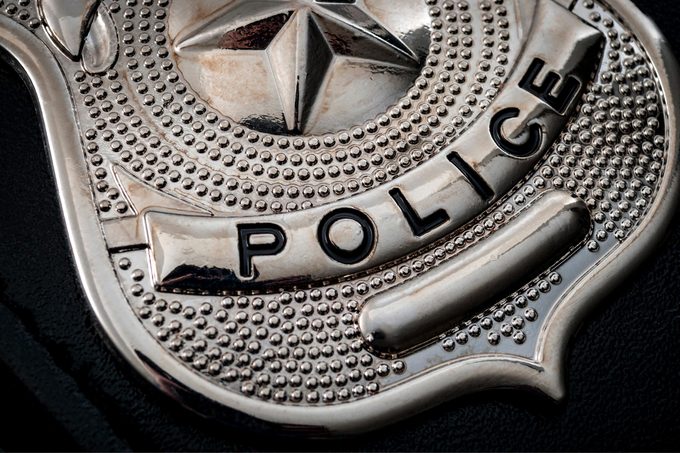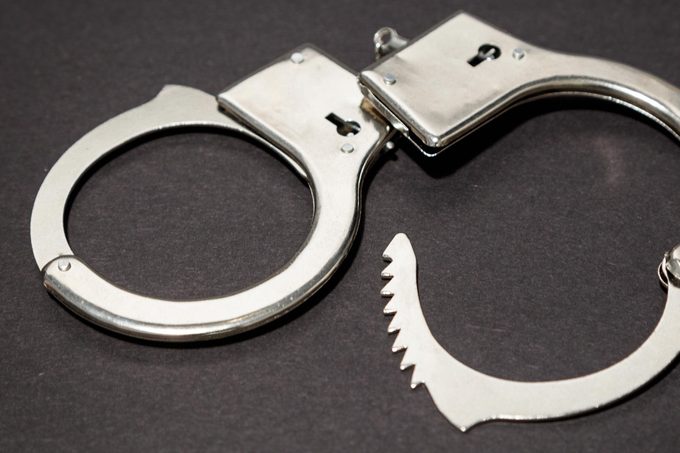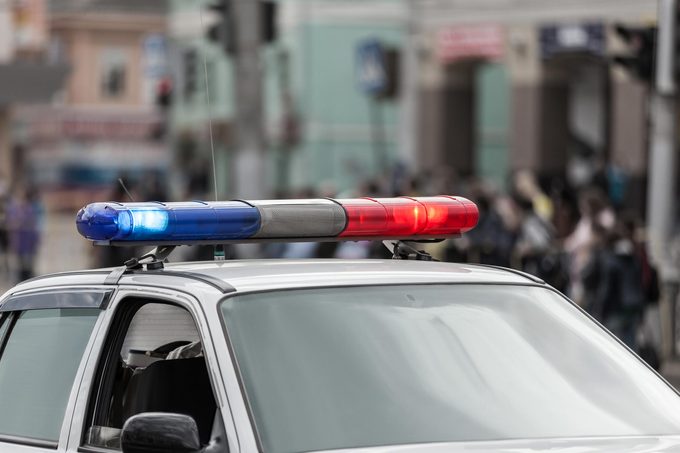how long does it take to become a police officer
"If you don't have anything good to say, don't say anything at all," goes the old adage. When interacting with law enforcement, a different set of rules apply to what you should and shouldn't say.
Anything that isn't absolutely necessary
 Victor Moussa/Shutterstock
Victor Moussa/Shutterstock
Everything you say to a police officer can be used against you. In fact, a simple traffic stop can turn into a search of your person and your car if you say anything that gives the officer reason to believe a crime is being committed or covered up. This is true whether or not you actually did, or are doing, anything wrong. As to what's "necessary"? In some states, you have the right to remain silent. Completely silent, according to the ACLU. In some states, you have to provide your name if a law enforcement officer stops you and asks you to identify yourself.
Anything rude or insulting
To be clear, the freedom of speech afforded to you as a U.S. citizen by the First Amendment to the U.S. Constitution permits you to say whatever you want to a police officer without fearing recrimination (except it's against the law to overtly lie to a police officer). Just because you can, however, doesn't mean you should. While a police officer can't arrest you just for being rude or insulting per se, the officer could easily claim you were inciting a fight and arrest you accordingly. Alternately, the officer could claim your words gave him/her reason to believe you were committing or covering up a crime, which is probable cause for searching you or your property. And for arresting you. Remember, police officers may be as scared of you as you are of them—here are 45 other things police officers wish you knew.
"I pay your salary…
Every police officer hears this at some point in his or her career, and no police officer ever replies, "Oh, that's right, carry on with whatever you were doing, boss." The fact that you pay taxes does not mean you're the police officer's employer or in any other way in a position of power vis a vis the police officer. Say this to a police officer, and you're running the risk of antagonizing him or her, and that's not going to benefit you in any way.
"Do you know who I am?"
Doesn't matter who you are. You're not above the law. Trying to use your "power and influence" to get a police officer to stand down is a losing proposition. No matter who you are. If it didn't work for Reese Witherspoon, who screamed at police officers during a traffic stop of her husband, "Do you know my name?!" and wound up getting arrested, why would it work for you?
And at a traffic stop, don't lead with, "Why did you pull me over?"
Even you aren't sure why you were pulled over, wait for the officer to ask if you know why you were pulled over (or to tell you). Either way, wait for the officer to lead your interaction. Although it might seem innocuous to get the ball rolling, doing so may be perceived as aggressive. In any event, it sets a negative tone. Here are some things that will get you a speeding ticket…besides speeding.
Anything at all after you've been arrested
 Feng Yu/Shutterstock
Feng Yu/Shutterstock
Remember how we said it's best to say as little as possible to a police officer? Once you've been arrested, you can and literally should cease speaking except to say "I want a lawyer." Once you've been arrested and read your Miranda rights ("Anything you say can and will be held against you"), your obligation to offer any further information of any kind is absolutely on hold pending your consulting with an attorney.
If you've been called in for questioning
Even if you're called in to help with an investigation that seemingly has nothing to do with anything you did, you are under no obligation to answer any questions. If you're called in for questioning in connection with having been arrested, see below.
"Go ahead and frisk me"
The Fourth Amendment to the Constitution protects all U.S. citizens from unreasonable searches, the key word being "unreasonable." If a police officer has reason to believe you may be armed and dangerous, they can frisk you (a quick pat-down of your clothing). In that case, you should submit to the frisk, but you still retain the right to challenge the legality of the frisk later on in court (and if you win that challenge, any evidence obtained by police as a direct or indirect result of the frisk is excluded from evidence in any case against you). That right to challenge goes away if you give your consent to the frisk.
"Go ahead and search…"
The Fourth Amendment's protection against unreasonable searches also extends to searches that go beyond mere frisking. For searches of your property (such as your car or your house), a search warrant or arrest warrant makes it reasonable. So does the officer having "probable cause" to believe there is evidence of a crime in the property that would be capable of being hidden or disposed of if the search were not to take place immediately. As with frisking, you still retain the right to challenge the search's legality later on, but that right goes away if you consent to the search.
"I didn't know what I was doing was a crime"
Ignorance of the law is not an excuse for breaking the law, and a cop will be quick to remind you of that if you play dumb—especially if it should be clear what law you were breaking. If you ever aren't sure what to say, the best strategy is to say nothing beyond the most simple, direct answers to an officer's questions. Or, nothing at all. In any case, you don't be like these 38 dumbest criminals of all time.
A confession
 Ilya Andriyanov/Shutterstock
Ilya Andriyanov/Shutterstock
For reasons psychologists are still studying, innocent people routinely confess to crimes they didn't commit and wind up in jail as a result. Don't do that. But if you did do the thing a police officer is accusing you of, it's still a bad idea to confess to the officer, attorney Randolph Rice tells Reader's Digest. Confessing to a police officer gives you nothing in return, no matter what the police officer might tell you about it perhaps affecting our sentence.
"I only…"
Saying you only had one cocktail before getting behind the wheel is a form of confession, Rice adds. At the very least, it may give a police officer probable cause to breathalyze you or even bring you down to the station. Likewise, saying you were only going five miles over the speed limit is a confession to speeding, and once you admit to going even one mile over the speed limit, your chances of getting out of a speeding ticket are almost nil. Here are the 17 things traffic cops aren't telling you about getting out of a speeding ticket.
Anything you might think is "funny"
Everyone thinks they have a good sense of humor. Not everyone does. And one person's "funny" is another person's "offensive." Do you really want to take your chances when talking directly to a police officer? If you think you're taking less of a chance on joking with a police officer by going with an old chestnut like, "Don't shoot" or "It wasn't me, officer," you're mistaken. As with "I pay your salary," the fact that cops have been hearing that sort of "joke" since the dawn of time (or at least taxation) only makes it worse.
Anything untrue
Outside of a court of law, you have zero obligation to tell the "whole truth," but no matter where you are, you have every obligation to tell nothing but the truth to law enforcement. Whereas police officers are allowed to lie to you and do so as a matter of course, it doesn't go both ways. If you lie to a police officer, you run the risk of being prosecuted for, among other things, obstruction of justice (which can lead to a felony conviction).
how long does it take to become a police officer
Source: https://www.rd.com/article/things-never-say-to-police-officer/
Posted by: weatherfordabould.blogspot.com

0 Response to "how long does it take to become a police officer"
Post a Comment